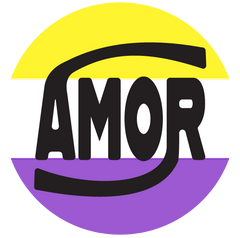
Raising Awareness about the Intersection between Gender Diversity and Autism
Raising Awareness about the Intersection between Gender Diversity and Autism
This trans awareness week, let's take a moment to raise awareness about the often-overlooked intersection of gender diversity and autism. More and more studies are demonstrating that transgender and non-binary individuals are more likely to be autistic than those in the general population. However, despite this revelation, transgender autistics continue to face unique challenges when it comes to accessing the support they need for their autism and the gender-affirming care they need. Therefore, it's critical to shine a light on this problematic intersection and work to create a more supportive environment for those who are neurodivergent and gender diverse.

Firstly, it's essential to note that gender identity and autism are distinct but often intertwined identity facets. Several studies have indicated that individuals who are transgender, non-binary, or gender non-conforming are more likely to be diagnosed as autistic than the general population. Around 26% of young people who present at gender clinics have an autism diagnosis compared to only 2% in the general population.
Furthermore, gender-variant autistics frequently report higher levels of marginalisation, with one in three reporting having their gender identity questioned solely because they are autistic. Some also point to the higher rates of undiagnosed autism within the transgender community, which can lead to a more challenging time accessing care and support for both their autism and gender identity.
For transgender autistics, accessing the appropriate care can be incredibly challenging due to the systemic hurdles in place. This includes finding healthcare practitioners who are well-versed in treating neurodivergent individuals and individuals who are gender diverse. Unfortunately, these intersections of identity are often not well-understood within the medical community, limiting transgender autistic individuals' options for gender-affirming care.
Beyond the healthcare system, individuals who are transgender and autistic can also struggle with social challenges, including accessing appropriate support within communities. For instance, autistic individuals who are gender diverse may not feel comfortable, safe, or supported in traditional transgender support groups. On the other hand, traditional autism support groups may not fully understand the unique barriers and challenges faced by those who are also gender diverse.
Due to these challenges, it's critical to continue raising awareness of this intersection of identity and advocating for more supportive environments for those who are transgender and autistic. This can include working to increase access to clinicians who are knowledgeable about both autism and gender diversity, encouraging the creation of more inclusive support groups, and implementing policies and guidelines that centre on creating greater awareness and support around the intersection of these identities.
Understanding the intersection of gender diversity and autism is crucial to creating a more inclusive and supportive society for all. As we acknowledge and celebrate Trans Awareness Week, let's also take the time to recognise and advocate for the unique needs and challenges of those who are transgender and autistic. By working to raise awareness and foster understanding, we can help ensure that all individuals, regardless of their intersection of identity, can access the support and care they need and deserve.
Here are some suggested resources if you are looking to better support trans and autistic youth, or to better understand your own autism and gender identity intersections:
- Supporting Transgender Autistic Youth and Adults: A Guide for Professionals and Families, by Finn V. Gratton
- The Autistic Trans Guide to Life, by Yenn Purkis and Wenn B. Lawson
- Queerly Autistic: The Ultimate Guide For LGBTQIA+ Teens On The Spectrum, by Erin Ekins
- The Awesome Autistic Guide for Trans Teens, by Yenn Purkis and Sam Rose
- Trans and Autistic, by Noah Adams and Bridget Liang
